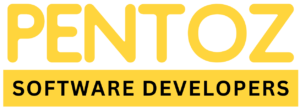Jeff Tao, TDengine: Becoming the de-facto standard IoT big data platform
TDengine builds innovative products to collect, store, compute, and analyze time-series data, based on the team’s deep understanding of the applications and characteristics of time-series data. Its flagship product TDengine is an open source time-series database with high performance, scalability, and SQL support.
Jeff Tao, TDengine: It has become the de facto standard IoT big data platform
TDengine creates innovative products for collecting, storing, calculating and analyzing time series data based on the application team’s deep understanding of the characteristics of time series data. TDengine’s flagship product is an open source time series database with high performance, scalability and SQL support.
What are the top IoT big data trends you’re seeing right now?
With more and more devices connected to the Internet, the amount of IoT data is growing exponentially. We need an efficient data storage/analysis tool. Real-time time series computation (forecasting and warning) will be an essential part of the IoT data platform.
As a relatively young startup, how do you stand out in a market that competes with large companies that have been around for a long time?
TDengine differentiates itself from other competitors with its hardcore technology within the product. Compared to other time series databases, the main differences included in the product are high performance, scalability and native SQL support. These benefits reduce the total cost of ownership of a big data IoT platform by at least 80%. Why do developers choose TDengine over anything your competition offers? What makes it stand out from the crowd?
Compared to other open source TSDBs, TDengine’s clustering feature is open source. Cluster functionality is a key feature for an IoT data platform, as the system must be scalable to accommodate growing business and higher data volumes. Most open source TSDBs do not support clustering. On the other hand, TDengine is a developer tool. Installation and cluster setup can be done in seconds. Runtime status can be monitored via Grafana or other DevOps tools. The cost of running a TDengine cluster is close to zero. In addition, it uses the most popular SQL as a query language instead of a proprietary language like many other TSDBs. This feature reduces learning and migration costs. Meanwhile, TDengine supports SQL extensions for better processing of time series data and provides convenient and flexible schema-free data entry.






